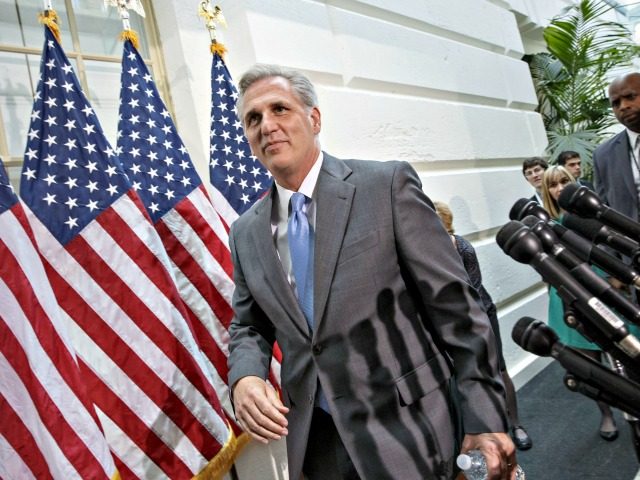House Majority Leader Kevin McCarthy (R.-Calif.) made bills focused on veterans’ care the first two votes Tuesday, immediately after the congressmen are sworn into office to begin the 115th session of Congress.
The first bill is the “Ensuring VA Employee Accountability Act,” sponsored by Rep. Ryan Costello (R.-Pa.), which makes a simple amendment to the federal law governing the management of civilian employees: “If any employee of the Department receives a reprimand or admonishment, the Secretary shall retain a copy of such reprimand or admonishment in the permanent record of the employee as long as the employee is employed by the Department.”
Costello’s bill passed the House May 18 in the last session, but it did not pass the Senate.
After the bill passed, Ryan said the bill does not create new punishments; rather it buttresses what is already in place:
Part of the systemic problems with the Department of Veterans’ Affairs stem from the fact that current policy prevents the keeping of complete employee files and does not allow the at-fault employees to be tracked or held accountable. It is critical to maintain a complete record of a poor performer in order to better understand an employee as long as they are with the Department. We must hold employees accountable for their actions and that is why I am proud to author this legislation.
Costello, a member of the House Veterans Affairs Committee, said in June after a visit to the Veterans Affairs hospital in Philadelphia that he was frustrated with the way the VA cared for veterans. He went on:
It is past time for a complete culture change and my colleagues on both sides of the aisle are ready to continue our direct oversight to ensure that the VA gets it right.
It is not a partisan issue, it is for the sake of our nation’s veterans and their families. Many of my constituents have been impacted by the corruption, waiting many years to receive the benefits they have been promised. It is my hope that in the coming days and weeks we will get to the root of the problem, hold those who are responsible accountable for their actions, and correct the wrongdoings at this facility.
The second bill, “Biological Implant Tracking and Veteran Safety Act of 2017,” sponsored by Rep. D. Phil Roe (R.-Tenn.), directs the Secretary of Veterans Affairs to adopt FDA’s unique device identification system for labeling of all biological implants and to implement an automated inventory system.
Row, who is also a member of the House Veterans Affairs Committee, said the bill was vital to ensuring that veterans are protected.
“Illegal trafficking in human tissue is a hugely profitable criminal enterprise that crosses international boundaries, and at least two companies that continue to supply large amounts of human tissue to VA have repeatedly received warnings from the FDA because they possess contaminated tissue and use sub-standard sterilization practices,” the Tennessee congressman said.
“My bill would help establish the VA as the industry leader in biologic implant safety and accountability,” he said. The bill was filed in the last session, but after it passed in the committee, it was not taken up for a House vote.
The Government Accountability Office reported to Congress in January 2014 that the VA does not use a standardized process for tracking biological tissue from cadaver donor to living veteran recipient. In the event of a recall, it would often be impossible to track down which patient had received the contaminated tissue.
McCarthy, as the majority leader, controls the scheduling of votes on the House floor, and with these two bills brings them for a House vote without going through the relevant committee, nor the House Rules Committee, using a “suspension of the rules” procedure for bills that have overwhelming support. However, in order to pass the House using this fast track, bills must garner at least 290 votes. In practice, virtually all bills brought up this way are approved by a voice vote without a recorded tally of yeas and nays.

COMMENTS
Please let us know if you're having issues with commenting.